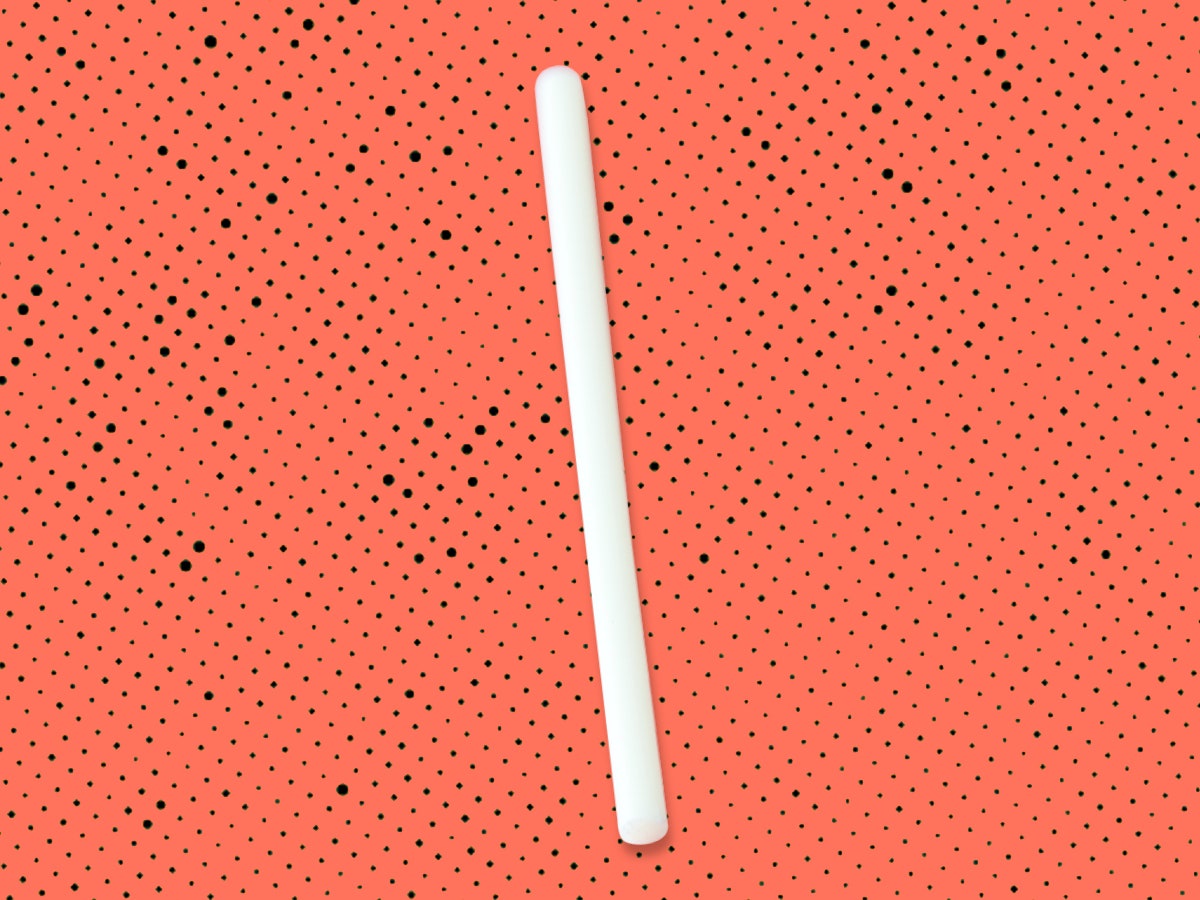
How IUDs work: Intrauterine devices, or IUDs, are implanted directly inside your uterus (it’s a quick in-office procedure similar to a Pap smear) to prevent pregnancy. With this type of birth control, you may still ovulate every month, unlike with the Pill or the patch. Rather than blocking ovulation, the IUD works by preventing sperm from getting to your eggs.
One type of IUD, a hormonal IUD, accomplishes this by “releasing a small amount of hormone daily that thickens the cervical mucus and thins out the uterine lining,” says Dr. Bryant. The barrier makes it nearly impossible for sperm to get to an egg. It also may stop your ovaries from releasing an egg in the first place. No egg, no pregnancy.
There’s also a non-hormonal IUD available; instead of hormones, it uses copper to help prevent pregnancy. “The copper in the IUD causes a sterile, inflammatory reaction in the lining of the uterus,” which also makes it next to impossible for a sperm and egg to meet and implant, says Dr. Bryant.
Effectiveness of IUDs: IUDs are among the most effective form of birth control you can get—more than 99 percent. The best part? Since it’s just chilling in your uterus, there’s no room for user error, meaning the effectiveness of IUDs doesn’t decrease the way it would if you forgot a pill.
Side effects of IUDs: Side effects aren’t always a bad thing: Many women experience lighter (or no) periods over time after getting a hormonal IUD. While you might have a little spotting, breast tenderness, or acne flare-ups at first, the side effects are typically much lower than those of other types of birth control, Dr. Bryant says. “Most of the hormone in the hormonal IUD acts locally in the uterus, so some systemic side effects, like the breast tenderness, are possible, but usually not as pronounced as with methods like pills or the implant, which provide higher levels to suppress ovulation,” she says.
With non-hormonal IUDs, there are no systemic effects, but you might notice changes in your menstrual cycle. “Many women will experience heavy, slightly longer and crampier periods with this method, especially in the first few months,” Dr. Bryant says. You might also notice some spotting mid-cycle.
How to know whether an IUD is right for you: Women with IUDs tend to love them because they last for years—once the IUD is inserted, it’s effective immediately and lasts for anywhere from three to 10 years. (This varies by brand so, ask your gyno which brand might be best for you and how long it lasts.)
If you have an especially heavy period or are prone to painful menstrual cramps, a hormonal IUD can help ease the monthly pain. “It’s also great for women who don’t want the hassle of a monthly period,” Dr. Bryant says.
If you’re looking for a non-hormonal birth control method, the copper IUD is the most effective. “This is great for women who are really motivated to avoid all hormones, don’t have superheavy periods to begin with, and would like to continue to have a regular monthly period,” says Dr. Bryant.
The Implant
Getty Images



